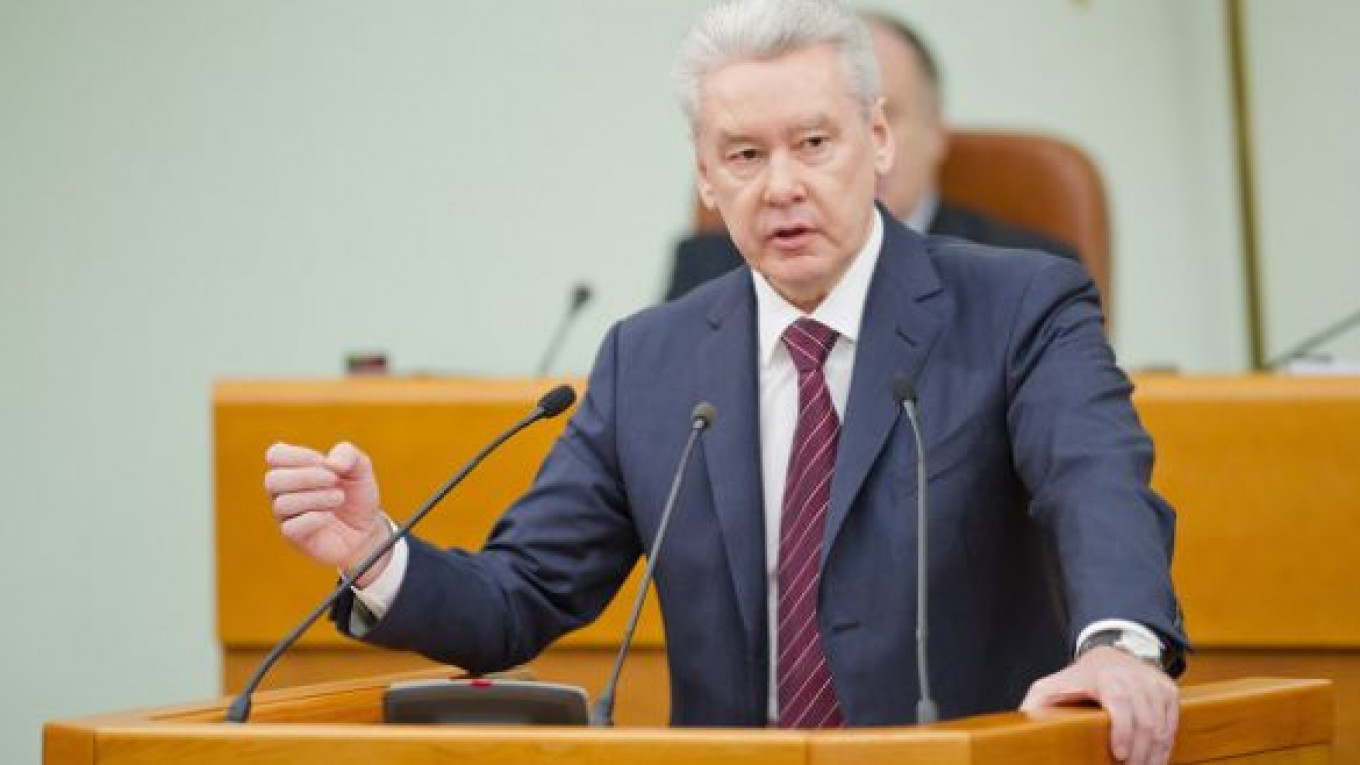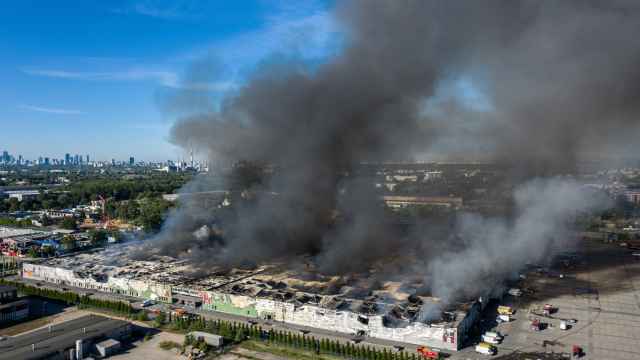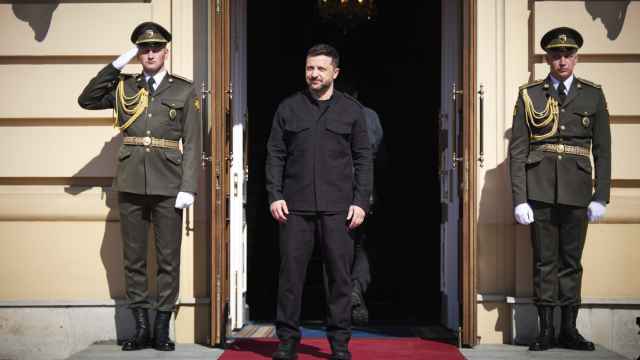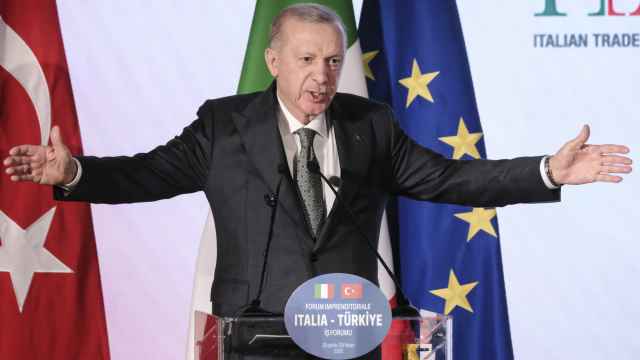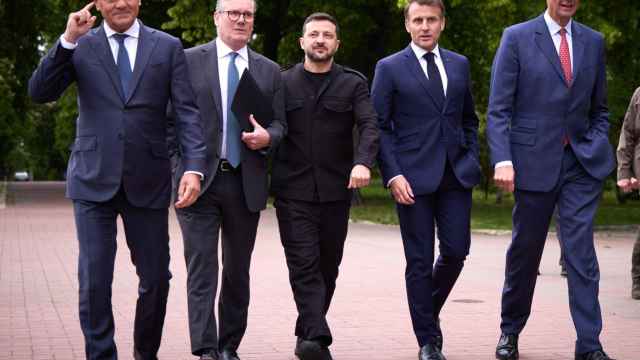Moscow Mayor Sergei Sobyanin said Tuesday that investment into the city's economy reached the pre-crisis level, citing commercial real estate as an example.
Twice as much is being invested in Moscow's commercial real estate as in London, he said at a high-profile panel on the city's development held by RIA Novosti.
But both Sobyanin and other officials admitted that the city faced major problems connected to traffic and the investment climate,
"A major part of businesses still work in the shadow economy," he said. "If we continue doing this, we'll ruin the city."
However, he cited as a positive example the fact that the number of private cab drivers working in the city legally increased from 9,000 in 2011 to 30,000 in 2012 due to the reform of the taxi system.
Doing Business: Relax or not?
Sobyanin called on government officials and the business community to look beyond the Doing Business ranking, but said the government should do more to cut red tape.
"We need to relax a bit and to see what's going on in the city without looking at foreign ratings, which can't always be objective," Sobyanin said.
He was referring to the Doing Business ranking, which is drawn up by the World Bank and the International Financial Corporation. Moscow was ranked 112th out of 183 countries in October 2012, an 8 point rise from 2011.
President Vladimir Putin said earlier that Russia aimed to rise to 20th place by the end of his term in office in 2018.
Deputy Mayor Andrei Sharonov said Russia's low position in the ranking was a fact and needed to be taken seriously.
Sharonov, who is responsible for the city's economic policy, also said that, in case of a recession, Moscow would be affected more than the rest of the country, since 90 percent of its taxes are collected by companies and individuals with the greatest exposure to the crisis.
He said, however, that the city's gross regional product had risen steadily and totaled $356 billion in 2012.
Meanwhile, New Economic School Rector Sergei Guriyev said cheaper oil could trigger a drop in other prices, attracting foreign tourists to the city.
"If it happens by the time of the next panel discussion, we will talk not only about investment, but about tourism too," he said during his presentation.
Industrial Zones
The construction of commercial real estate will reach the pre-crisis level this year, Sobyanin said.
He also said Moscow still had a lot of former industrial zones that needed to be developed.
The development of such zones is the one of the city's biggest problems, Sharonov admitted.
He said, however, that some of them were being developed. The former Zil heavy truck factory, where investors are carrying out a light truck production project in a partnership with Sberbank, is one example, Sharonov said.
He said the problem was aggravated by the existence of multiple owners of property in those areas, who bought them for a song in the 1990s.
"Some of them don't even live in Russia anymore," he said.
Contact the author at a.bratersky@mail.ru
Related articles:
A Message from The Moscow Times:
Dear readers,
We are facing unprecedented challenges. Russia's Prosecutor General's Office has designated The Moscow Times as an "undesirable" organization, criminalizing our work and putting our staff at risk of prosecution. This follows our earlier unjust labeling as a "foreign agent."
These actions are direct attempts to silence independent journalism in Russia. The authorities claim our work "discredits the decisions of the Russian leadership." We see things differently: we strive to provide accurate, unbiased reporting on Russia.
We, the journalists of The Moscow Times, refuse to be silenced. But to continue our work, we need your help.
Your support, no matter how small, makes a world of difference. If you can, please support us monthly starting from just $2. It's quick to set up, and every contribution makes a significant impact.
By supporting The Moscow Times, you're defending open, independent journalism in the face of repression. Thank you for standing with us.
Remind me later.


